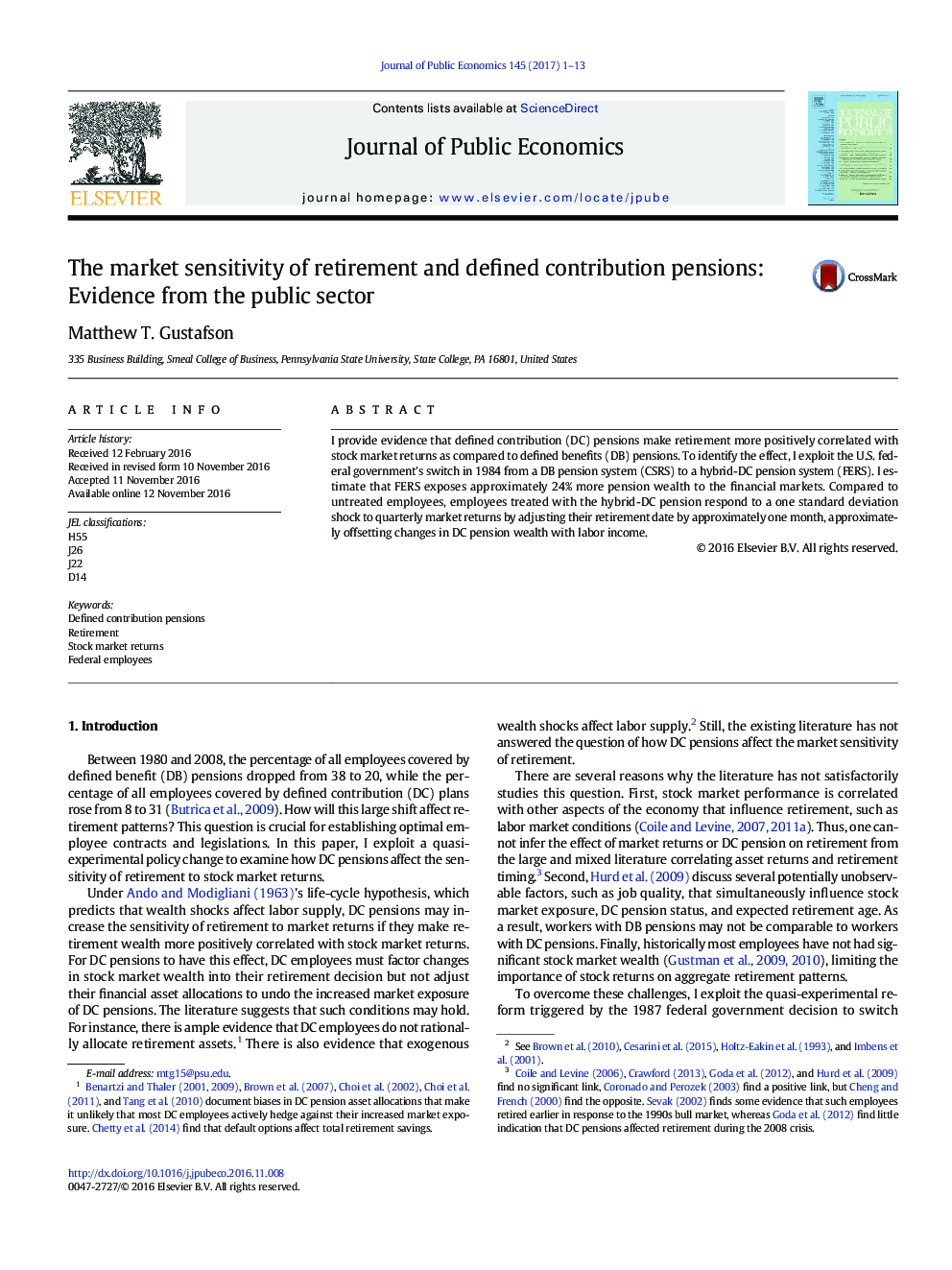| Article ID | Journal | Published Year | Pages | File Type |
|---|---|---|---|---|
| 5101822 | Journal of Public Economics | 2017 | 13 Pages |
Abstract
I provide evidence that defined contribution (DC) pensions make retirement more positively correlated with stock market returns as compared to defined benefits (DB) pensions. To identify the effect, I exploit the U.S. federal government's switch in 1984 from a DB pension system (CSRS) to a hybrid-DC pension system (FERS). I estimate that FERS exposes approximately 24% more pension wealth to the financial markets. Compared to untreated employees, employees treated with the hybrid-DC pension respond to a one standard deviation shock to quarterly market returns by adjusting their retirement date by approximately one month, approximately offsetting changes in DC pension wealth with labor income.
Related Topics
Social Sciences and Humanities
Economics, Econometrics and Finance
Economics and Econometrics
Authors
Matthew T. Gustafson,
